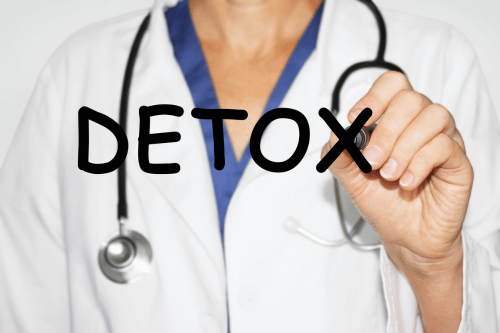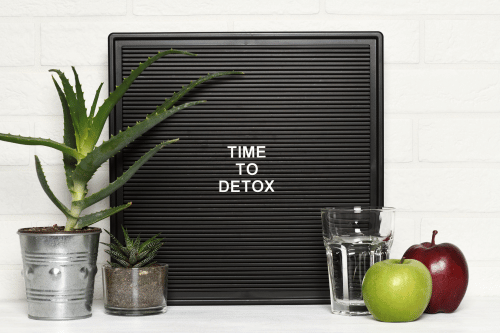

What is medical detox? Medical detox is a structured process where a patient stops using drugs or alcohol while under medical supervision. It helps manage withdrawal symptoms, prevent complications, and start the path to sobriety. At Sullivan Recovery in Mission Viejo, we provide outpatient medical detox services that address substance dependence, mental health, and physical safety.
Substance abuse can lead to dangerous withdrawal symptoms during detox. Medical detox uses medications to manage symptoms like anxiety, seizures, delirium tremens, and high blood pressure. This approach protects a patient’s health and reduces the risk of serious issues like tachycardia, hyperthermia, or death.
Patients detoxing from opioids, alcohol, benzodiazepine, or methamphetamine may experience drug withdrawal symptoms that impact both the brain and body. These include insomnia, diarrhea, irritability, and abnormal heart rate. Medical detox treats these symptoms using drugs like buprenorphine, methadone, diazepam, clonidine, and naltrexone.

Quitting cold turkey can be life-threatening, especially for substances like alcohol, opioids, and benzodiazepines. Without proper care, a patient may face severe drug withdrawal symptoms like seizure, hyperthermia, delirium, or dangerously elevated blood pressure. Other risks include insomnia, irritability, tachycardia, fever, and extreme fluctuations in vital signs such as heart rate and blood pressure.
Medical detox uses structured detoxification programs backed by medicine and professional oversight to reduce the risks. It also accounts for a patient’s medical history, existing disease conditions like diabetes or hypertension, and any co-occurring mental health disorders. At Sullivan Recovery, we never recommend cold turkey detox. Instead, we provide detox programs that include medication like diazepam, methadone, clonidine, and buprenorphine to support safe withdrawal from depressant and stimulant substances.
Our licensed detox centers offer therapy, nursing, peer support, and psychiatry, creating a safe environment for recovery. We also integrate dual diagnosis care to address anxiety, depression, and other psychiatric symptoms that may spike during cold turkey attempts. Through outpatient detox, our patients receive personalized care that balances physical health, mental health, and sobriety goals.
Medical detox is often needed for alcohol, opioids, benzodiazepines, barbiturates, and stimulants like amphetamine or methamphetamine. These drugs change how the brain works and cause substance dependence over time. Sudden withdrawal without medicine can result in severe symptoms, including hyperthermia, diarrhea, stress, and delirium tremens.
Opioids such as oxycodone, morphine, codeine, and illicit drugs like heroin are linked to opioid use disorder. Prescription drug addiction is common and may start with misuse of medication like painkillers or depressants. During detox, medications such as buprenorphine, methadone, or naltrexone bind to the opioid receptor, blocking cravings and reducing withdrawal discomfort.
Substance abuse involving alcohol can lead to dangerous alcohol detoxification symptoms like seizures, hypertension, or hallucinations. Medical detox addresses these risks through medications including chlordiazepoxide, lorazepam, or oxazepam. Detox centers like Sullivan Recovery assess each patient’s substance use, physical symptoms, and mental health needs before creating a detox program that aligns with evidence-based protocols.

Detox is not just about the body—it’s also about the brain. Many patients entering detox struggle with mental health conditions like anxiety, bipolar disorder, or personality disorder. This is called dual diagnosis, and it requires care that combines psychiatry, psychology, and structured therapy programs.
Untreated psychiatric symptoms during detox can worsen withdrawal outcomes. Conditions such as depression, stress, or insomnia may be intensified during drug detox. At Sullivan Recovery, we provide mental health treatment alongside medical detox to ensure safety and stability during the early stages of sobriety.
Our services include dialectical behavior therapy, contingency management, and individual therapy to support coping and motivation. Physicians and psychiatrists prescribe antidepressants or anxiolytics as needed to regulate mood and reduce psychological stress. We also monitor vital signs and use medications to manage physical symptoms while reinforcing behavioral health recovery strategies. With integrated mental health care, detox becomes a more stable and effective first step in long-term addiction treatment.
What medication is used for alcohol withdrawal? Physicians may prescribe diazepam, chlordiazepoxide, lorazepam, oxazepam, or clonazepam. These drugs calm the central nervous system and prevent severe symptoms like seizures or delirium tremens.
What drugs are used for alcohol withdrawal also depend on the patient’s medical history, blood pressure, and risk factors. Other medications like naltrexone, naloxone, and antidepressants may also be used depending on the substance and symptoms.
For opioid detox, common medications include buprenorphine, methadone, and clonidine. These reduce cravings and ease physical withdrawal without producing a high. These are sometimes given as an oral dose, injection, or sublingual tablet.
Medical detox starts with a full medical history, physical exam, and psychiatric assessment. Nurses and physicians monitor vital signs, including heart rate, blood pressure, temperature, and blood oxygen levels. This ensures patients are safe and stable.
Medication is given to manage symptoms, and patients receive nursing care to support hydration, nutrition, and sleep. Medical detox may last a few days to a week, depending on the drug, dosage, and duration of use. Patients often experience symptoms like fever, sweating, vomiting, or nose congestion during withdrawal.

Addiction is a disease that affects both mental health and physical health. Detox is the first step in treating substance abuse, but it is not enough by itself. Once the patient is stable, they must enter long-term treatment to build coping skills and avoid relapse.
Sullivan Recovery offers outpatient detox followed by therapy and mental health treatment. Services may include individual counseling, peer support, and group therapy for continued motivation and accountability.
Alcohol detoxification is one of the most dangerous types of medical detox. Patients may suffer from high blood pressure, hallucinations, and seizures. Medical detox ensures these symptoms are managed with medicine like diazepam or oxazepam.
What do doctors give for alcohol withdrawal? Physicians often prescribe benzodiazepines and monitor for delirium. The process is similar for benzodiazepine detox, where long-acting drugs like clonazepam or chlordiazepoxide are used to taper the dose safely.
Medical detox can be done in a clinic, treatment center, or outpatient setting. Sullivan Recovery provides outpatient medical detox in Orange County, allowing patients to receive daily support while living at home.
Inpatient detox may be needed for severe cases, such as those with serious withdrawal symptoms, medical complications, or unstable mental health. Detox centers like American Addiction Centers, Recovery Village, or our treatment center offer structured care for these situations.
Health insurance often covers medical detox services. Most major providers recognize addiction as a treatable disease and support detoxification programs under behavioral health or substance abuse treatment plans. At Sullivan Recovery, we verify insurance benefits and help patients access care.
Medications, physician oversight, nursing care, and mental health treatment are typically included. This makes medical detox more affordable and accessible for those who need it.

Drug withdrawal can trigger a wide range of physical and mental symptoms. These include:
Monitoring these symptoms is critical in preventing complications. Medical detox helps reduce the intensity and duration of these symptoms using approved medications.
Many patients entering detox also struggle with dual diagnosis issues. They may have depression, PTSD, bipolar disorder, or other mental health conditions. Without proper care, these can get worse during detox.
Sullivan Recovery integrates psychiatry and therapy into every detox program. This helps patients maintain motivation and build a foundation for lasting abstinence and recovery.
Vital signs like heart rate, blood pressure, and temperature are constantly monitored during medical detox. Fluctuations in these signs may signal danger and require medication intervention. For example, elevated blood pressure or tachycardia can signal stress, withdrawal, or cardiovascular strain.
Patients with conditions like diabetes, hypertension, or heart disease are especially vulnerable. Proper monitoring ensures safety throughout the detox process.
Once detox is complete, patients should move into ongoing care. Options include outpatient therapy, peer support, sober housing, or continued psychiatry. These services help patients stay committed to sobriety and manage life without drugs or alcohol.
Medical detoxification is the start of recovery, not the finish. At Sullivan Recovery, we guide patients from detox through every phase of care, building a strong path to long-term recovery.
Sullivan Recovery provides outpatient medical detox services in Mission Viejo, serving Orange County and the surrounding areas. Our clinic offers safe and effective detox programs for opioid use disorder, alcohol detoxification, benzodiazepine dependence, and more.
We treat every patient as a whole person, not just a diagnosis. Our staff includes physicians, nurses, therapists, and mental health professionals. Each detox program is designed to reduce symptoms, restore health, and prepare the patient for full recovery.
To summarize, what is medical detox? It is the process of clearing drugs or alcohol from the body using medicine, nursing care, and mental health support. This step is essential for treating addiction and preventing serious withdrawal symptoms.
Medical detox offers safety, structure, and support. At Sullivan Recovery, our outpatient detox programs are backed by evidence, licensed staff, and a focus on the full recovery journey. If you or a loved one needs detoxification, don’t go cold turkey. Reach out today for professional support and take the first step toward sobriety.
At Sullivan Recovery, as an in-network provider we work with most insurance plans, such as:
And More
If you or a loved one are struggling with mental health challenges or substance abuse, reach out to Sullivan Recovery today. Our team of compassionate professionals is here to support your journey towards lasting well-being. Give us a call at 949-836-7180.
The length of medical detox depends on the substance, the patient’s health, and the severity of substance dependence. Most detox programs last between 3 to 10 days. Some patients may need extended care if withdrawal symptoms are severe or if multiple substances are involved.
Home detox is not recommended, especially for alcohol, opioids, or benzodiazepines. Over-the-counter medications cannot prevent serious symptoms like seizure, delirium tremens, or high blood pressure. Medical detox provides supervision, prescription medications, and emergency support to keep patients safe.
Leaving detox early can increase the risk of relapse, medical complications, or overdose. Without completing the detox program, the body remains unstable and vulnerable to symptoms like insomnia, anxiety, and cravings. It’s important to finish detox and continue into a structured treatment program.
No, medical detox is the first step before rehab begins. Detox helps the body clear substances and stabilize physical and mental health. Rehab focuses on therapy, coping skills, and long-term recovery through inpatient or outpatient programs.